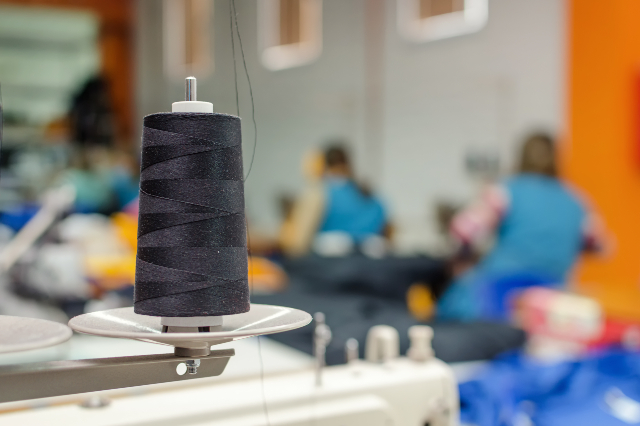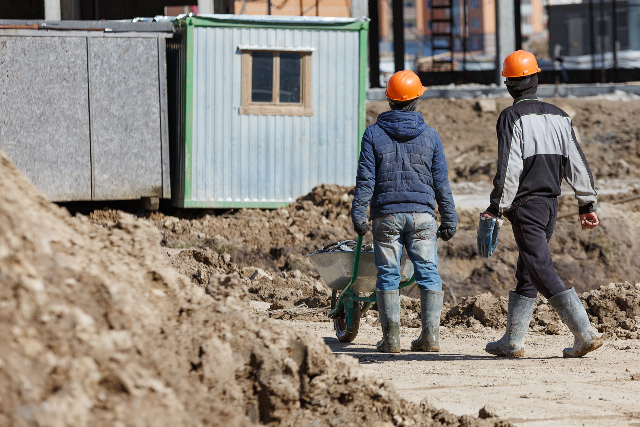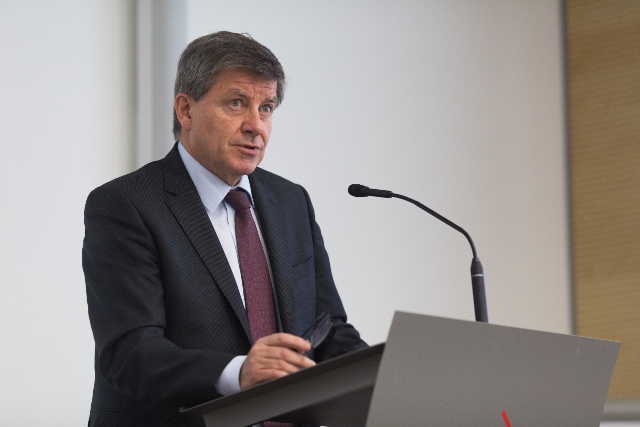The commemoration of the International Labour Organization’s 100th anniversary during 2019 is an opportunity to take stock of progress in the world of work and recommit to bridging the divides that remain.
We should feel pride in our achievements. Child labour has fallen dramatically, women have entered the labour market in far greater numbers, and weekly working hours have been progressively reduced.
Employers’ and workers’ organisations have engaged with governments through social dialogue to adopt International Labour Standards, which have improved working conditions. The objectives of social justice, full employment, and decent work are recognised as being central to the UN 2030 Agenda for Sustainable Development.
Today no one would deny that labour rights are fundamental human rights and critical to ensuring a life of dignity.
Despite significant progress, too many continue to work in dangerous jobs with no protections and little hope for a better tomorrow.

Yet despite this significant progress, too many people remain trapped in forced labour. Too many continue to work in dangerous jobs with no protections and little hope for a better tomorrow.
We are also witnessing rapid changes in the world of work – technology, climate change, demographic shifts, and globalisation - which cannot be left unchecked to shape our future.
I’ve often said the challenges we face demand actions no less transformative than those taken at the ILO’s founding a century ago.
The challenges we face demand actions no less transformative than those taken at the ILO’s founding a century ago.
The recent report by the ILO’s Global Commission on the Future of Work offers a valuable roadmap for our social partners – employers, workers, and governments – in the years ahead, as well as for the international community. The Global Commission reminds us that the future is not yet decided. We must construct it together. It should be a future that ensures social justice and a focus on the person, the individual – wherever they live, and whatever the work that she, or he, does.
Governments, alongside employers’ and workers’ organisations, need to reinvigorate the social contract and respond to this array of challenges, in particular those facing the most vulnerable people and countries.
We need to seize the opportunities that will emerge from these transformations in the world of work. Jobs will be lost because of robotisation, for instance. Yet, many millions of jobs will be created in industries that don’t even exist right now.
Addressing these and other global issues will require more effective implementation of existing legal commitments as well as new partnerships between governments, businesses, trade unions, and broader civil society. The establishment of the ILO was perhaps the earliest form of collective action at the global level to advance respect for human rights. That means we recognise the value of engaging diverse partners with shared aims.
The establishment of the ILO was perhaps the earliest form of collective action at the global level to advance respect for human rights.

I’ve been pleased to support partnerships with organisations from all regions, including the Institute for Human Rights and Business, which is marking its own important ten year anniversary. The ILO and IHRB have worked together on innovative projects with a range of actors to improve respect for human and labour rights.
We’re joining with others to strengthen migrant worker rights through the Leadership Group for Responsible Recruitment. This group seeks to use the collective leverage of global brands, civil society, and intergovernmental organisations to promote fair recruitment of migrant workers in line with ILO Convention 181 and the ILO General Principles and operational guidelines for fair recruitment. Collectively we’re calling for the prohibition of recruitment fees being charged to migrant workers and are promoting models of fair recruitment.
This focus on responsible recruitment is a critical aspect of the ILO’s developing activities in Qatar and we are pleased to be engaging with IHRB and major hospitality companies to ensure that migrant worker rights are respected.
It is significant that we will be working with IHRB’s founding Chair and Patron Mary Robinson and the growing alliance of organisations and actors who have helped launch the Centre for Sport and Human Rights. The new Centre must become a critical actor and trusted platform for sharing good practices, building capacities, and strengthening accountability across the world of sport. There is much work ahead to make human rights and labour standards understandable and actionable for sports organisations. We look forward to collaborating with the Centre and its partners later this year, as the ILO hosts a special Global Dialogue Forum on Decent Work in the World of Sport. This forum will be one of the culminating events of our Centenary year and will help set the direction for future ILO actions in this area.
Looking to the future, we must redouble our efforts to strengthen the rights of workers in every sector and in every kind of job. By our own estimates, the informal economy makes up more than half of the global labour force and over 90 per cent of micro and small enterprises worldwide and yet it is associated with greater abuse of labour rights and insufficient social protections. So protecting the most vulnerable workers is central to our mission as we move forward.
The ILO and all our partners must continue to find ways to be more effective advocates for core labour standards in the years ahead. On our 100th anniversary, we look forward to reinforcing our partnerships with organisations such as IHRB in order to make decent work, human, and labour rights a reality for all.
The ILO and all our partners must continue to find ways to be more effective advocates for core labour standards in the years ahead.





























How should businesses respond to an age of conflict and uncertainty?
As 2024 began, European Commission President Ursula von der Leyen aptly summed up our deeply worrying collective moment. As she put it, speaking at the annual World Economic Forum in Switzerland, we are moving through “an era of conflict and...
26 March 2024 | Commentary
Commentary by Scott Jerbi, Senior Advisor, Policy & Outreach, IHRB